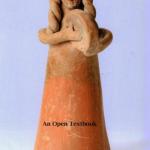I am not a sports fan and so I am not sure why my mind made a connection between John the Baptist and Field of Dreams. I saw on the news recently that they have a real baseball field in the middle of a cornfield on Iowa and (after an introduction by Kevin Costner) they played a classic game in classic uniform. It was well attended. The movie Field of Dreams features the famous line “if you build it, they will come.”
So what’s the connection with John the Baptist? He didn’t build anything physical, and that is my main point here. I suspect that Jesus’ saying about the temple being destroyed and rebuilt may have been a message from John the Baptist. If John expected a rebuilt temple, it may have been a literal or a metaphorical one. Either way, what he offered in his own time was not an alternative edifice to the temple but immersion in running water. We imagine him standing in the middle of the desert, and people just came to him like they came to that Iowa cornfield in the movie. What we are missing is that where the river flowed it wasn’t really desert, unless you got close to the Dead Sea at which point immersion becomes increasingly difficult, and at the very least unpleasant.
It seems to me unlikely that we are correct to see John as a recluse, even if he may have made some relatively isolated location a base of operation. John or his disciples must have traveled to places where people were. He doesn’t seem to have called them all to one fixed location, although it is possible that John himself was understood to play a unique priestly role in administering this alternative to sacrifice. That too, however, is unclear. That some thought of it as “John’s baptism” need not mean that only John performed it, just that he was understood as the one who originated and/or promoted it.
I do think John was trying to build something. In my book on John the Baptist that I hope to write soon, I will pick up a line of thought that I have hinted at in earlier publications. The threat to destroy the temple that Jesus delivered was likely John’s message. Was John also seeking to see another built, not made of human hands? And if so, was that baptism in rivers, the renewed community of God’s people, or something else?
But at any rate, my point here is that I don’t think we should envisage John the Baptist as the voice of one crying in a cornfield in Iowa, with a line of cars showing up to hear him. That’s a powerful modern mythical image in an American cinematic context, but not how we should imagine someone who was clearly an enormously influential and well-networked religious figure roughly 2000 years ago.













